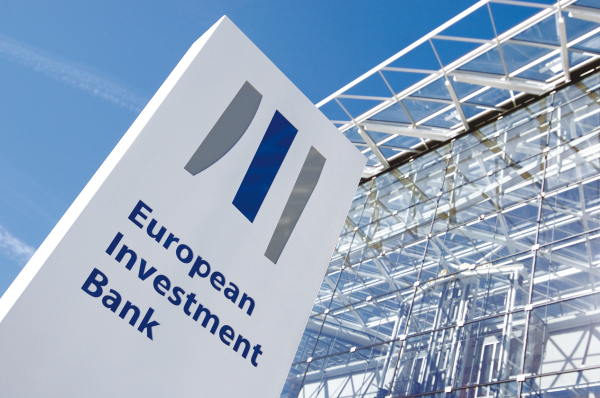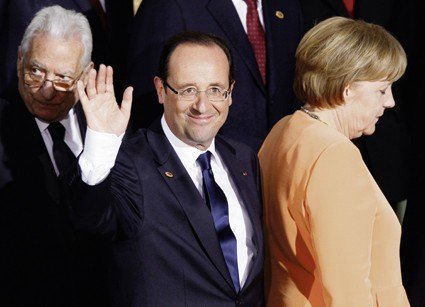European Investment Bank President Werner Hoyer has told the German media that the EU bank could recall loans it gave to VW.
The EIB will examine whether Volkswagen used any loans from the European Union to cheat on emissions tests for diesel vehicles and could demand money back.
In an interview with Sueddeutsche Zeitung, Werner Hoyer said that the EIB gave loans to the German automaker for things like the development of low emissions engines.
He said the loans could be recalled in the wake of VW’s emissions cheating scandal.
The newspaper reported that about €1.8 billion of those loans are still outstanding.
Werner Hoyer is quoted as saying that the EIB had granted loans worth around €4.6 billion to VW since 1990.

Photo EIB
“The EIB could have taken a hit [from the emissions scandal] because we have to fulfill certain climate targets with our loans,” the Sueddeutsche Zeitung quoted Werner Hoyer as saying.
The EIB president was attending the IMF meeting in Lima, Peru.
Werner Hoyer added that the EIB would conduct “very thorough investigations” into what VW used the funds for.
He told reporters that if he found that the loans were used for purposes other than intended, the EIB would have to “ask ourselves whether we have to demand loans back”.
Werner Hoyer also said he was “very disappointed” by Volkswagen, adding the EIB’s relationship with the carmaker would be damaged by the scandal.
VW admitted that about 11 million of its vehicles had been fitted with a “defeat device” – a piece of software that duped tests into showing that VW engines emitted fewer emissions than they really did.
Werner Hoyer’s comments come days after VW USA CEO Michael Horn faced a Congress panel to answer questions about the scandal, which has prompted several countries to launch their own investigations into the automaker.
EU leaders at Brussels summit have agreed to use the eurozone’s bailout fund to support struggling banks directly, without adding to government debt.
Speaking after 13 hours of talks in Brussels’, EU chief Herman van Rompuy also said a eurozone-wide supervisory body for banks would be created.
Officials said the plans could be finalized during July.
Analysts say Germany appears to have given ground after pressure from Spain and Italy to provide more support.
The two southern European countries had withheld support from an earlier plan to for a growth package worth 120 billion Euros ($149 billion).
They wanted measures to lower their borrowing costs.
Herman van Rompuy said the new proposals would break the “vicious circle” between banks and national governments.
Although Germany appears to have compromised, Chancellor Angela Merkel has managed to ensure that Brussels has more control over the finances of eurozone countries, something she had wanted.
The deal came about after new French President Francois Hollande appeared to throw his weight behind Italy and Spain.
“I’m here to try to find rapid solutions for those countries facing pressure from the market, despite having made huge efforts to balance their budgets,” the socialist French president said.

EU leaders at Brussels summit have agreed to use the eurozone's bailout fund to support struggling banks directly, without adding to government debt
The new growth package, announced by Herman van Rompuy, is made up of:
• A 10 billion-euro boost of capital for the European Investment Bank, expected to raise overall lending capacity by 60 billion Euros
• Targeting 60 billion Euros of unused structural funds to help small enterprises and create youth employment
• A pilot launch of EU project bonds worth 4.5 billion Euros for infrastructure improvements, focusing on energy, transport and broadband.
In Brussels, both Italy and Spain were pushing the eurozone bloc to agree steps to reduce the interest rates the two countries have to pay.
Spanish 10-year government bonds were trading at yields above 6.9% on Thursday, coming close to the 7% considered unaffordable.
Spain’s Prime Minister Mariano Rajoy said debt sustainability was a pressing problem.
“We are paying rates that are too high to finance ourselves and there are many Spanish public institutions that cannot finance themselves.”
Spanish and Italian leaders are worried that their countries could soon – in effect – be shut out of international markets and forced to seek assistance.
Angela Merkel has warned there is no “magic formula” to solve the crisis.
Several EU leaders want individual countries’ debts guaranteed by the whole eurozone, for instance in the form of centrally issued eurobonds.
But Angela Merkel told the German parliament on Wednesday that eurobonds were “the wrong way” and “counter-productive”, adding: “We are working to breach the vicious circle of piling up debt and breaking [EU] rules.”
She said to loud applause: “Joint liability can only happen when sufficient controls are in place.”
Stronger competitiveness was the condition for sustained growth, the chancellor said.
Meanwhile, UK Prime Minister David Cameron said on his arrival at the summit that eurozone countries had some “hard decisions” to make.
When asked about plans for transferring more budgetary powers to the EU level, he said he shared “people’s concerns about Brussels getting too much power”.
European authorities have also unveiled proposals such as the creation of a European treasury, which would have powers over national budgets. The 10-year plan is designed to strengthen the eurozone and prevent future crises, but critics say it will not address current debt problems


